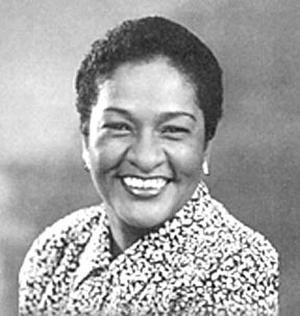|
Guyana on the verge of narco-state
status -Backer
Monday, March 7th
2005
|
PNCR MP Debra Backer says that Guyana was either a narco-state or was on the verge of becoming one as it had the necessary elements, even though it might not yet be a major producer or exporter in the order of the leading narco-states. US convict in Burnham's Army In her presentation on the budget to the National Assembly on Thursday, she suggested the urgent need for a remand centre in view of the overcrowding of the Georgetown prison, and called for a better-equipped Guyana Fire Service, a review of electrical wiring in the city's wooden buildings and functioning hydrants to protect properties including Guyana's wooden heritage. She also suggested that the authorities seek to rename the Guyana Police Force substituting the word 'Service' for 'Force' to transform it to a better security and service organisation. The police force had agreed to the change but it has not yet been effected. She said the government had to spend money to improve the force's effectiveness and efficiency and invest in breathalyzers to deal with the issue of driving under the influence of alcohol. Committed leadership, proper investigation, training and education, timely, effective intelligence, inter-agency coordination, international coordination, appropriate legislation and its application were all issues listed for transforming the police force. And Backer noted that from remarks made by the leadership of the force, some attempt at transformation was being made. With regard to what constitutes a narco-state, Backer listed ten criteria: the extent to which a country is a major producer or exporter of one or more narcotic drugs; the production and export of narcotics forming a significant proportion of the country's gross national income; the laundering of illegal drug money distorting and corrupting the financial markets and institutions; the operations of drug organisations corrupting the effectiveness of law enforcement agencies; and the extent to which crimes, which are related to drug trafficking such as illegal firearms trade, have grown. The other criteria relate to the degree to which the internal security situation has deteriorated as a result of the penetration of drug traffickers; the operations of traffickers and related violence and insecurity affecting political stability; the extent to which civil authorities and institutions and both public and political officials are corrupted by connections with the narco-trade; the degree to which the state offers protection to the operations of drug producers and traffickers and the degree to which, despite declarations about the war on drugs, the drug trade operates without significant detection or prosecution; and the extent to which the operations and connections of known drug lords affect public policy. Backer said one of the important points to note was that violent attacks and wars did not help the fight against drugs and many experts argue that violent drug wars without proper policy and effective detection and correction of the scourge of money laundering often created increased instability and triggered violent reactions from the drug organizations. She said that while Guyana "is not yet a major producer or exporter in the order of the leading narco-states, it appears that most of the other criteria apply to some degree. The people of Guyana are invited to judge for themselves, based on their answers to these questions." Backer said the country's economic growth would continue to be stymied if issues of crime and security were not a priority for the government. She was critical of the police force's dealings with the various issues of crime and security. As regards drug trafficking, she said the major busts were not in Guyana as a country of origin, but were made at the destination. Cocaine in fish, lumber, coconut; the list was endless, she said. She added that the Royal Canadian Mounted Police has listed Guyana and Jamaica as the top two transit points for narcotics to Canada. She expressed wonder at the country's increased net exports when production was down and wondered whether the cocaine found in the legitimate exports was responsible for the increase. She said a frightening trend was developing in which more and more young people were becoming involved in criminal activities. She linked this to poverty and violence with women, children, young people and the elderly being the victims. Perusing the copies of the Stabroek News from January 1, to the end of December last year and all the newspapers for this year show that everyday a crime was committed and reported. "What about those that were not reported?" she asked. Added to the criminal activities, Backer said, was a list of white-collar crimes such as the dolphin scam. Noting that Guyana had a problem with illegal firearms and that acting Minister of Home Affairs, Gail Teixeira had admitted to weaknesses of Guyana's open borders, she asked what proposals there were on the part of the government to deal with the issue. After months of protest a Disciplined Forces Commis-sion was established to give the country an opportunity to look into the functioning of these organisations. However, she said the parliamentary select committee to look at the report of the commission was set up and only the meeting to select the chairman, PPP/C MP Bernard De Santos, was held, "which does not send the right signal". It was held on the same day as the meeting to select the chairman of the parliamentary select committee to deal with the issue of trafficking in persons (TIP). However, that TIP select committee met several times and its report was presented to parliament and approved. She said the temporary removal of Minister of Home Affairs, Ronald Gajraj as a result of the death squad allegations to allow an inquiry was one of the best things that could have happened in coping with matters of crime and security. - (Miranda La Rose) |



